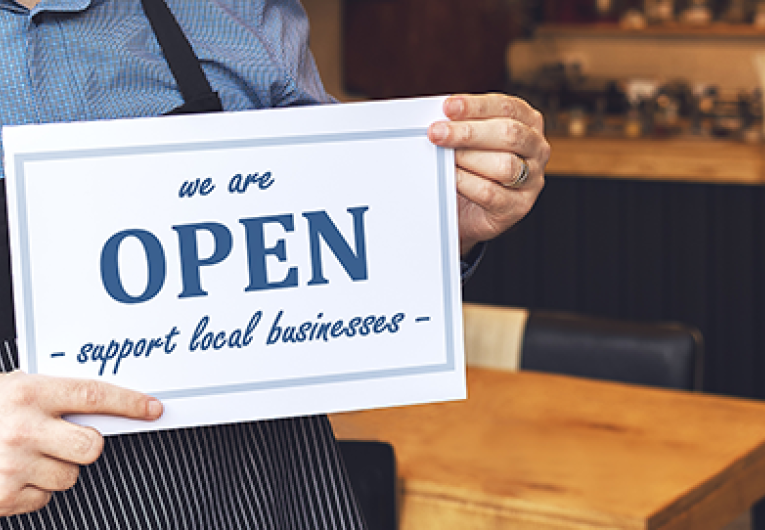
5 Key Health and Wellness Technologies That Can Support Your Busy Lifestyle
Evolving digital health technology keeps giving us new data trackers and other engaging ways to improve our health, well-being, and health systems — everything from exercise apps and heart monitors to platforms that connect patients with providers.
Here are five health and wellness technologies everyone should know more about.
Wearables
Wearable tech is undoubtedly among the most well-known health and wellness technologies, thanks to popular fitness trackers and smartwatches.
Powered by microprocessors and sensors that receive, analyze, record, and communicate data through contact with the body, wearables can track your physical activity, heart rate, sleep patterns, and other health metrics, such as blood oxygens and cholesterol levels.
Beyond smartwatches, this type of tech also comes in wearable accessories like rings and earbuds. Some even include devices implanted in your body and those tattooed on your skin, but that may only be for some!
Thanks to demand and popularity, wearable technology continues to evolve, creating a booming industry. The global wearable tech industry in 2022 was estimated at $61.30 billion and is expected to expand at a compound annual growth rate (CAGR) of 14.6 percent from 2023 to 2030, according to an analysis by Grand View Research.
As far as results, wearable tech users report benefits to their health and well-being, including more physical activity, reduced sedentary behavior, and improved overall health outcomes.
Seventy-five percent of wearable tech users told a Deloitte study that their health tangibly improved after using their devices.
Tech for Mental Health
Technology supports a wide range of tools to improve mental health, from coaching and meditation apps to remote visits with therapists. Some of the latest tools are AI-backed.
“It sounds like an odd coupling, but technology has produced new AI-backed mental health tools that enable employers to better support their employees,” writes Bryan Robinson, Ph.D., author of Chained To The Desk In A Hybrid World, in a Forbes post.
For example, AI-backed voice journaling and platforms are available to provide employees with real-time insights into their mental health and recommendations on the kind of support needed.
Telehealth Tech
Telehealth isn’t new, but the pandemic shutdowns created increased demand for virtual care.
Telehealth services come in various formats, including via technology that connects physicians, therapists, and other types of providers with patients at remote locations, i.e., at home or a medical facility.
Prior to the pandemic, less than 1 percent of outpatient visits were via telehealth but made up more than 20% from 2021 to 2022 and for all population groups, according to a national survey by the U.S. Department of Health and Human Services. Further, projections estimate telehealth will be a $286.22 billion industry by 2030.
Personalized Wellness @ Work
More companies are considering health and wellness tech for building and tailoring their employee wellness programs.
Options include platforms that gamify health activities such as gym attendance or taking desk breaks for gentle physical activity. For example, there’s a platform called Gympass that combines fitness apps with gym memberships and classes or apps like Zevo Health that are designed to work with teams that are either office-based or remote.
These types of apps and platforms are designed to integrate with wearables and fitness platforms companies, and employees are already using them to integrate their workplace wellbeing programs with their overall fitness regimes.
Data shows that wearable use at the workplace can impact businesses’ bottom lines due to improved safety, brain health, and stress reduction. These findings were cited as a catalyst, in part, for a new AI-powered stress-relieving device called Thodian Tokens.
The new device comes from a collaboration among multi-disciplinary researchers and industry experts who were connected through the Partnership for Economic Innovation’s Arizona WearTech Applied Research Center, according to an October article posted by AZ Big Media.
TouchPoint Solutions collaborated with the Research Center and Arizona State University's Luminosity Lab to create the new stress-reducing tech.
AI Personal Trainer
No surprise, but yes, AI can get you a personal fitness trainer and a personalized plan designed to help you achieve your goals.
App examples include Artifit, which uses AI techniques like computer vision, where cameras track body movements during exercise and then offer real-time user feedback on their posture and technique.
Some AI trainer apps use augmented reality (AR) to get visual overlays on top of video recordings of your workout, showing you where you are going wrong and how you can improve your workout.
Staying Connected
Digital healthcare and wellness tech certainly can improve lives, and there’s plenty of evidence that we really could use the help.
By 2030, 170 million Americans are expected to have a chronic illness. That’s according to a report from Health for Life, a framework developed by the American Hospital Association and other groups to improve health and health care in the U.S.
“There’s an urgent need for a solution that helps people better prevent or manage illnesses,” says wearable device maker Movano, a company “that was created to make medical-grade data accessible and actionable for everyone.”
Movano’s products include a Radio Frequency (RF)--enabled sensor for blood pressure and glucose monitoring.
Reliable high-speed Business Internet is critical to so many parts of your business, and that includes ease of access to the technologies that reinforce your health and wellbeing and that of your employees. Be sure you have the right business internet to deliver enough speed and bandwidth to support multiple users, devices, platforms, and apps.
The trends, insights, and solutions you need to grow your business.
By signing up, you’re subscribing to our monthly email newsletter, The
Wire. You may unsubscribe at any time.
Your information stays safe with us. Learn more about our privacy
policy.











![[#MSP_NAME#] Logo](/themes/sparklight_business/images/transition-logos/migration-banner-logo-[#MSP_CD#].png)
